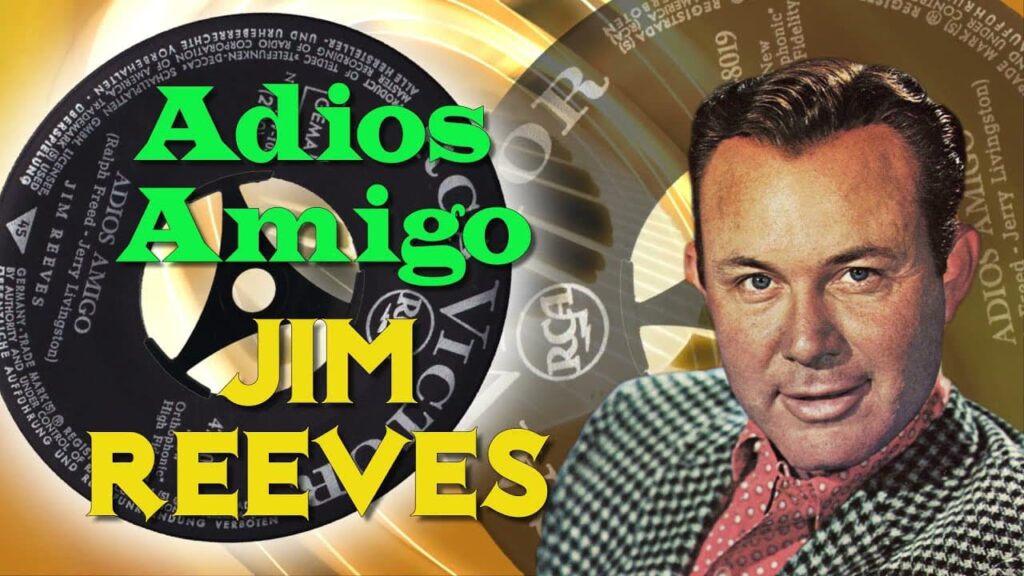
🤠 The Bittersweet Farewell: A Timeless Reflection on Loss and Memory
A Lasting Echo of Goodbye: Jim Reeves’ “Adios Amigo”
There are certain melodies that don’t just play; they linger—a soft, enduring echo in the quiet corners of the heart. For many who came of age in the early 1960s, few songs capture that poignant, nostalgic ache quite like Jim Reeves’ hauntingly beautiful rendition of “Adios Amigo.” It wasn’t just a hit; it was a cultural touchstone, a gentle hand guiding us through the universal experience of saying farewell.
The song, penned by the talented duo Ralph Freed and Jerry Livingston, found its perfect, velvet-voiced interpreter in Jim Reeves. Released on the RCA label (catalog no. 45-RCA-1293), it immediately resonated with audiences, becoming one of the defining tracks of the year. Its commercial success was undeniable, a testament to its emotional depth. “Adios Amigo” made its grand entrance onto the Billboard country and western charts in May 1962. It didn’t just chart; it dominated, holding the coveted No. 2 spot for an impressive nine weeks. Its staying power was remarkable, remaining on the charts for a total of 21 weeks, a true marathon runner in the music world. By the close of the year, its impact was officially recognized, ranking as the No. 5 song on Billboard’s 1962 year-end country and western chart. Across the northern border, Canadian listeners were equally captivated, with the song reaching No. 15 on the CHUM Charts. These chart statistics aren’t mere numbers; they are a direct reflection of how deeply this simple, powerful song burrowed into the public consciousness.
The very title, “Adios Amigo”—Spanish for “Goodbye, friend”—sets a tone of tender finality. Yet, the song is so much more complex than a simple goodbye. It is the story of a last ride, a moment of shared reflection between two companions, perhaps two cowboys or old friends, as they part ways forever. The lyrics, delivered in Reeves’ smooth, baritone voice, paint a vivid picture:
“The trail is long and dusty, so I must say adios, my friend.”
This imagery evokes a sense of rugged individualism and the loneliness of the open road, themes that resonated deeply with the spirit of the time and the heart of country music. However, the story behind the song transcends the Western setting. At its core, it speaks to the inevitability of separation—whether from a loved one, a way of life, or even a cherished memory.
The true meaning of “Adios Amigo” lies in its bittersweet acceptance of loss. It’s not a song of despair, but one of dignified, tender resignation. The “goodbye” is acknowledged, but the final, lasting sentiment is the promise that the shared journey, the companionship, and the memories will endure. It offers a gentle reassurance that even when someone is physically gone, their presence remains woven into the fabric of one’s life.
For older readers, listening to this track often brings a rush of specific memories: a slow dance, a tearful departure at a train station, or perhaps the quiet grief of losing a loved one. The rich, orchestral arrangement and Reeves’ signature croon—often referred to as the “Nashville Sound”—provide a warm, comforting blanket over the sorrowful message, transforming pain into a beautiful, memorable ache. This song, forever tied to the legend of Jim Reeves, who would tragically pass away just two years later, carries a particularly poignant weight, making every listen feel like a personal, reflective farewell. It remains a timeless, heartfelt elegy, a perfect piece of nostalgia delivered with unparalleled grace.